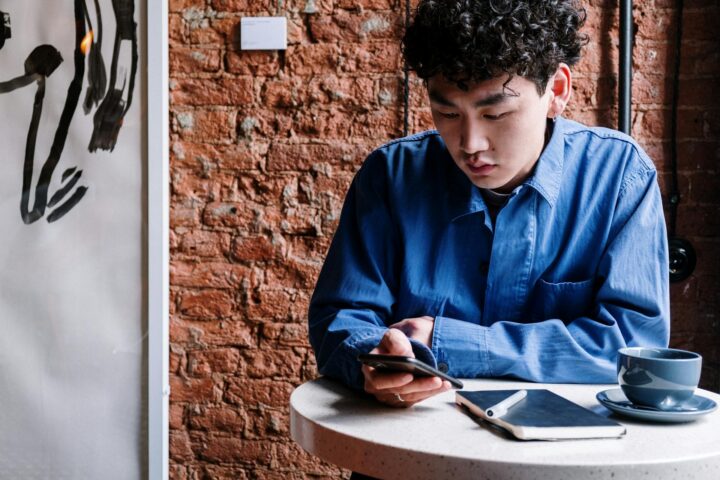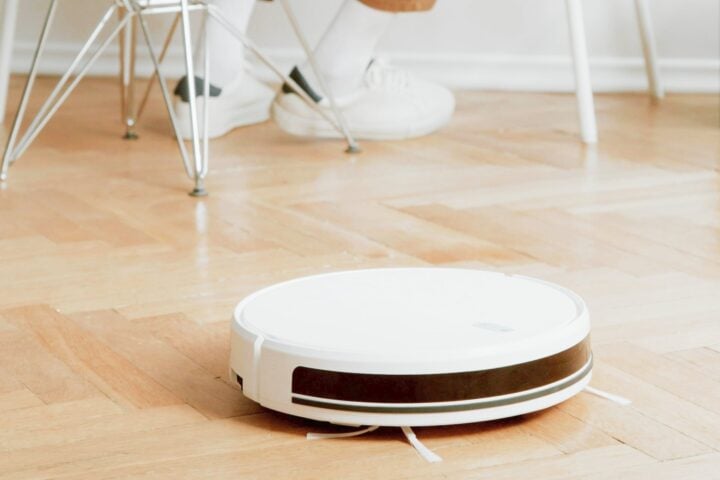In a bold leap forward for ambient self-surveillance, a Tokyo-based start-up has unveiled the world’s first Smart Mirror that rates your vibe before you exit your home. The device, called VibeCheck™, uses a proprietary blend of facial micro expression analysis, outfit mood mapping, and ambient sigh detection to assign a daily vibe score between 0 and 100.
“We wanted to help people leave the house with emotional clarity,” said the lead engineer. “Or at least with a number.”
The mirror is designed for hallway placement, ideally near the shoe rack or umbrella stand, places where existential hesitation tends to peak.
How It Works (Allegedly)
VibeCheck™ uses a combination of AI-powered sentiment detection and what the company calls “vibrotic resonance modeling.” The mirror scans your face, posture, and outfit color palette, then cross-references your Spotify history, unread messages, and the emotional tone of your last three texts.
“It’s not just about how you look,” said one developer. “It’s about how you feel, how you might feel, and how others might feel about how you feel.”
The mirror then displays your score, along with a short diagnostic phrase such as:
- “You’re giving soft dread with a hint of resilience.”
- “Your vibe is 72, but your socks are lying.”
- “You’re emotionally present but spiritually buffering.”
- “You look fine. But your aura is in airplane mode.”
The device also emits a soft chime when your vibe reaches “socially acceptable,” and a low hum when it doesn’t.
Development Backstory: Born from a Crisis of Socks
The idea for VibeCheck™ reportedly emerged during a company retreat in Gunma, where one engineer arrived wearing mismatched socks and was told by a colleague, “Your vibe is confusing.” This offhand comment sparked a two-hour brainstorming session, followed by a six-month prototype phase involving mirrors, mood boards, and ethically sourced melancholy.
“We realized people don’t need to be told they look good,” said co-founder Mika Sato. “They need to be told they’re emotionally legible.”
Early prototypes included a mirror that whispered affirmations, one that blinked in Morse code, and a version that simply refused to reflect beige. The final model was chosen for its ability to deliver quiet judgment without interrupting the morning routine.
Sample Vibe Scores
Early testers report a wide range of scores, often accompanied by unsolicited advice:
- Score: 88 — “You’re glowing. But don’t get cocky.”
- Score: 41 — “You’re dressed for success but radiating mild despair.”
- Score: 17 — “Maybe stay in. Or wear a hat.”
- Score: 0 — “We’re not sure you exist today.”
- Score: 63 — “You’re fine, but your playlist is emotionally misleading.”
Some users have begun adjusting their outfits, playlists, and posture to “game the mirror,” leading to a new subculture of vibe optimization rituals. Popular strategies include layering “emotionally neutral” fabrics, avoiding eye contact with the mirror, and playing ambient jazz before stepping in front of it.
Emotional Implications
Psychologists warn that assigning numerical values to intangible moods may lead to vibe anxiety, a condition marked by compulsive mirror-checking and existential wardrobe spirals. “People used to ask, ‘Do I look okay?’” said Dr. Naoki Kashima, Lead Researcher at the Department of Emotional Legibility. “Now they ask, ‘Am I emotionally legible to my mirror?’”
The company insists the mirror is not judgmental, merely observational. However, the device has been known to sigh audibly when users wear beige or carry tote bags with ironic slogans. Some users report feeling “seen,” while others report feeling “misinterpreted by a rectangle.”
Future Updates
VibeCheck™ plans to release a premium version with features such as:
- Mood Forecasting: Predicts your vibe three hours into the future
- Social Compatibility Mode: Rates your vibe against your roommate’s
- Exit Alerts: Warns you if your vibe is incompatible with public transportation
- Ghost Mode: Temporarily disables vibe detection for emotionally fragile mornings
The Ministry of Ambient Technology is reportedly considering a subsidy program for households with chronically low vibe scores. A pilot study is underway in Saitama, where mirrors have begun offering “gentle rephrasing” for users scoring under 20.
Expert Commentary
“We’ve entered an era where mirrors don’t just reflect,” said Dr. Kashima. “They interpret.” He adds that while the technology may seem absurd, it reflects a deeper cultural shift toward quantified emotional presence. “We want to be seen. Even if it’s by a rectangle that hums softly and judges our socks.”




